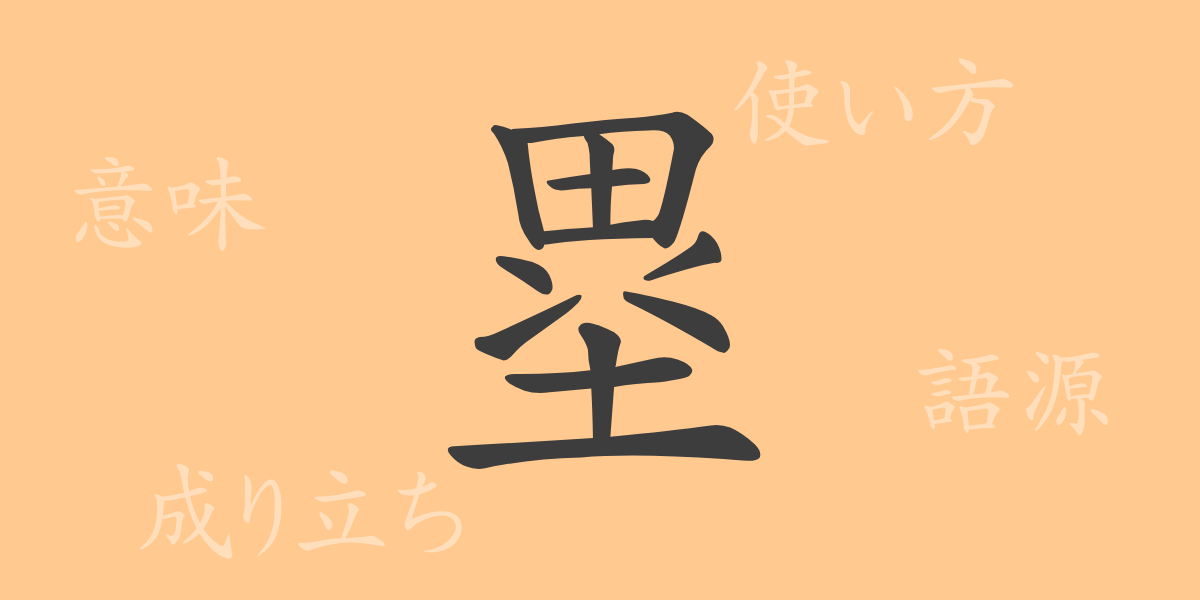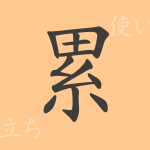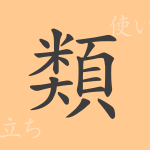In the Japanese language, there are numerous kanji characters with profound meanings. The kanji “塁” (るい, rui) is used in various contexts, from sports fields to history textbooks, and even in everyday conversation. Let’s delve into the history and meaning embedded in this single character and embark on a journey to rediscover the richness of Japanese culture and language.
The Origin of 塁 (るい, rui)
The kanji “塁” (るい, rui) was originally used in ancient China to signify walls or fortresses. It evolved from defensive structures made by piling up earth and later found its way into sports terminology. This kanji is composed of the radical “土” (つち, tsuchi), meaning earth, and the phonetic component “隹” (すい, sui), evoking the image of a high place built on earth.
The Meaning and Usage of 塁 (るい, rui)
The kanji “塁” (るい, rui) developed as a term referring to military fortifications or defensive structures. In sports like baseball, it is established as a term meaning base. Additionally, it is used metaphorically to mean “foundation,” indicating something that supports the base of a matter.
Reading, Stroke Count, and Radical of 塁 (るい, rui)
Let’s examine the readings and components of the kanji “塁” (るい, rui).
- Readings: On’yomi (音読み) “ルイ” (るい, rui), Kun’yomi (訓読み) “とりで” (とりで, toride)
- Stroke count: 13 strokes
- Radical: 土 (つちへん, tsuchi-hen)
Idioms, Phrases, and Proverbs Using 塁 (るい, rui)
Here are some idioms and phrases that include the kanji “塁” (るい, rui).
- 三塁打 (さんるいだ, sanruida): In baseball, it refers to a hit that allows the batter to reach third base.
- 塁を固める (るいをかためる, rui wo katameru): To firmly defend and secure a position or state.
- 塁を守る (るいをまもる, rui wo mamoru): In sports, it means to cover a specific position. Metaphorically, it means to uphold one’s stance or duties.
Summary of 塁 (るい, rui)
The kanji “塁” (るい, rui), as its form suggests, signifies a high place built by piling up earth. It is used in various contexts, from military terminology to the world of sports, and even in everyday metaphorical expressions. Understanding words and idioms related to 塁 (るい, rui) not only enhances language comprehension but also provides deeper insights into the culture.

























